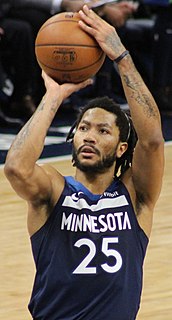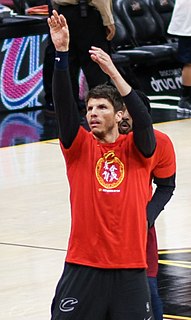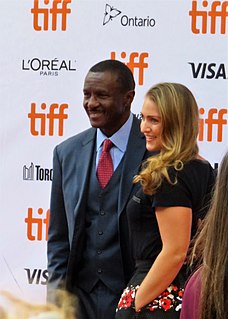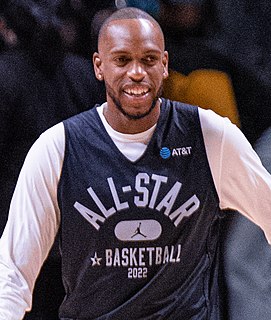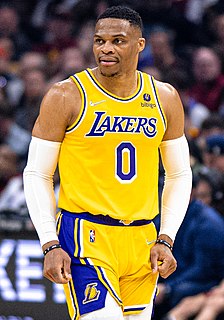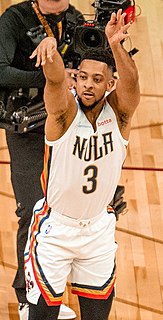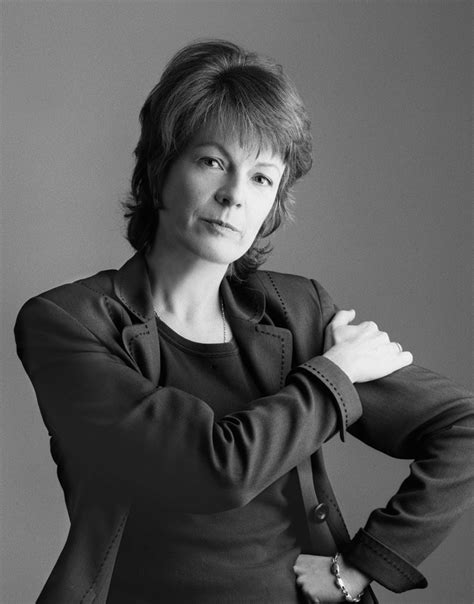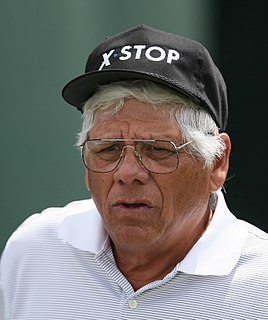A Quote by Derrick Rose
I have a lot of confidence in my shot and I'm willing to shoot it no matter what.
Quote Topics
Related Quotes
You go through slumps. The shot feels good in practice and looks good and for whatever reason in the game, they're in and out. Sometimes it gets frustrating, but for me, I've played in the league long enough to know you just have to put in the work in practice and shoot with confidence, shoot your way out of it.
We are somewhat amused by the hysteria manifest in the press at the suggestion by Gordon Liddy that if one is menaced by bad guys (particularly the ninja) one is wise to shoot for the head. That statement has got a whole bunch of journalists and commentators bleeding from the nose. One wonders why it should. Where else should you shoot a man if he is probably wearing an armored vest? If you decide to shoot you have made the big decision. Where you place your shot is merely a technical matter.
It's been a part of my game for life. It's tougher to finish in the lane so you've got to find different areas to score efficiently and the mid-range contested shot is a shot a lot of teams will live with. And it's a shot I'm willing to live with as well just because I've gotten so many shots at it and I'm comfortable with it.
We know the 65-point policy points, to the extent that they exist, but is Hillary Clinton willing to be vulnerable, is she willing to be funny, is she willing to be both authoritative, but also real? And so less what she says than the emotional tone she sets. It takes a lot of confidence to be a vulnerable speaker on this stage. And sometimes she hasn't always projected the confidence it takes to be in some ways weak. But that's what I think people were looking for, that moment of human connection.
If I'm ever working on a set and anyone talks about a master shot, I say there is no master shot. Before I even went to film school, I learned about movies by being in a British feature film, where everything was shot master shot, mid-shot, close-up. But I reject the idea of a master shot. You don't shoot everything mechanically; you find imaginative ways that serve the action.
